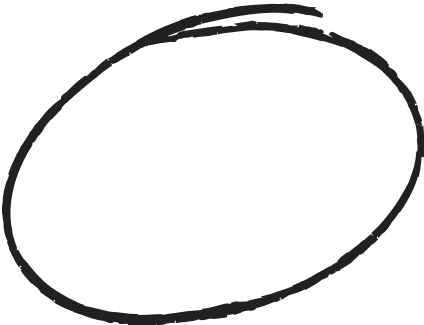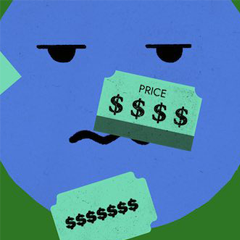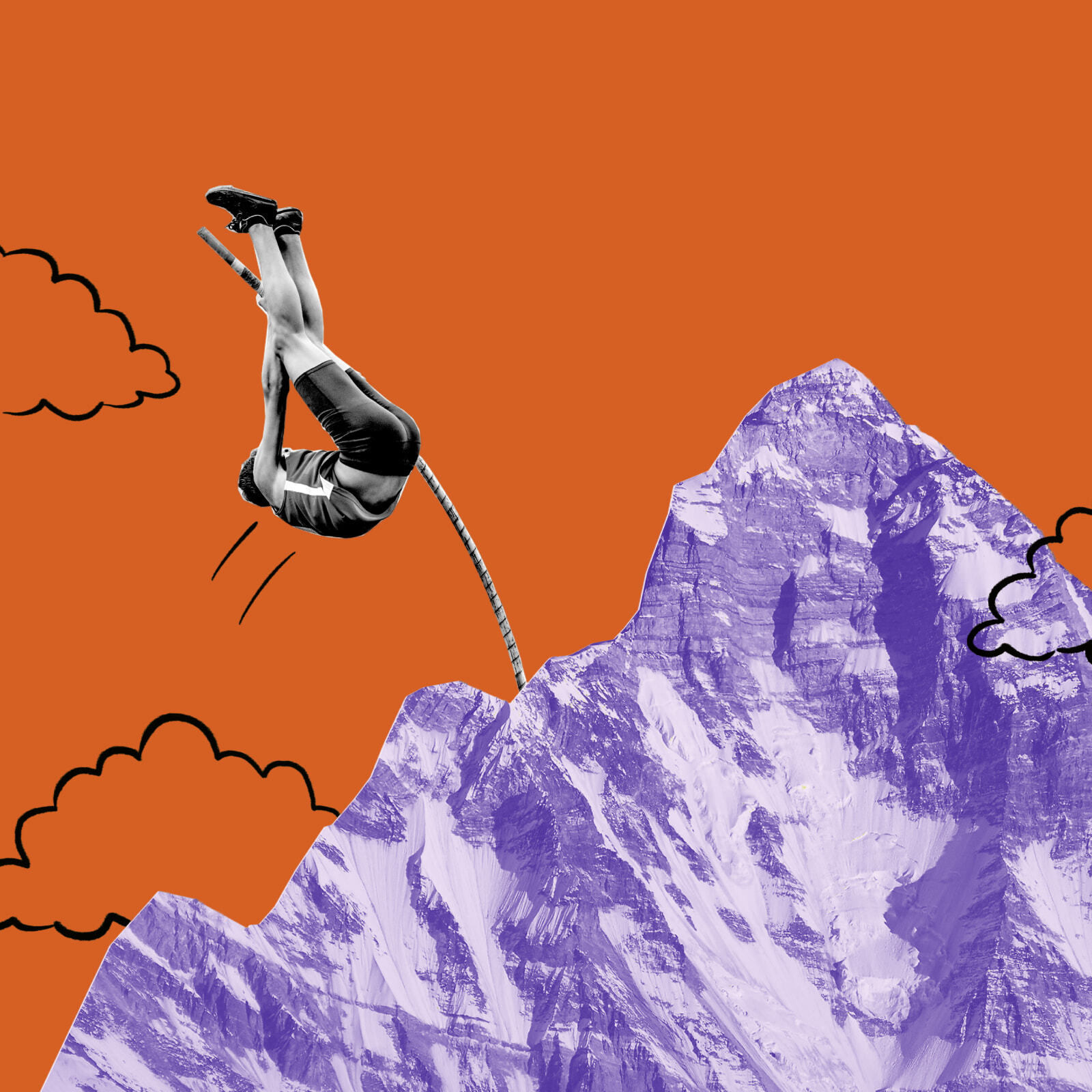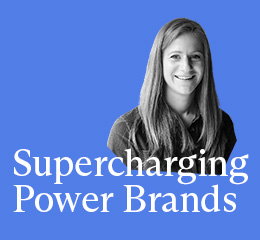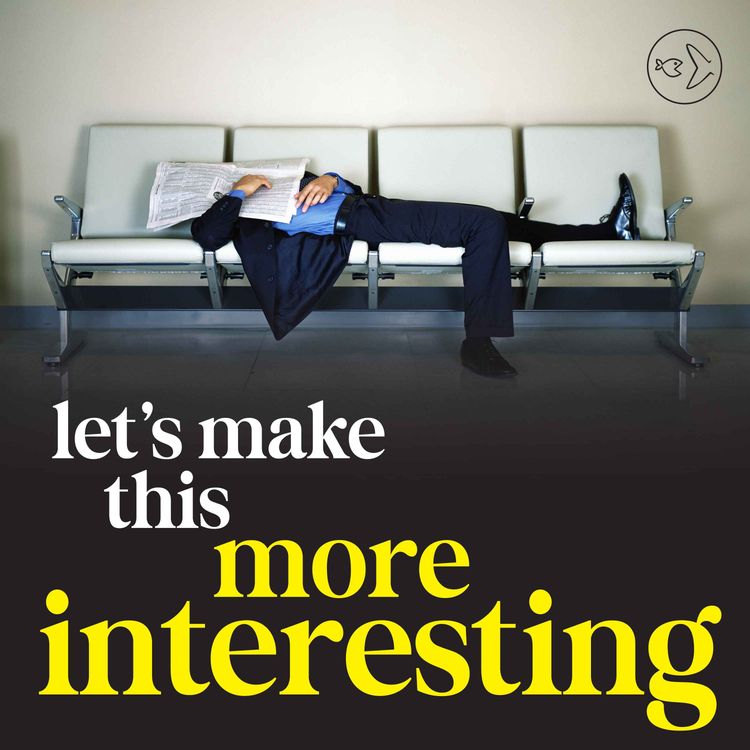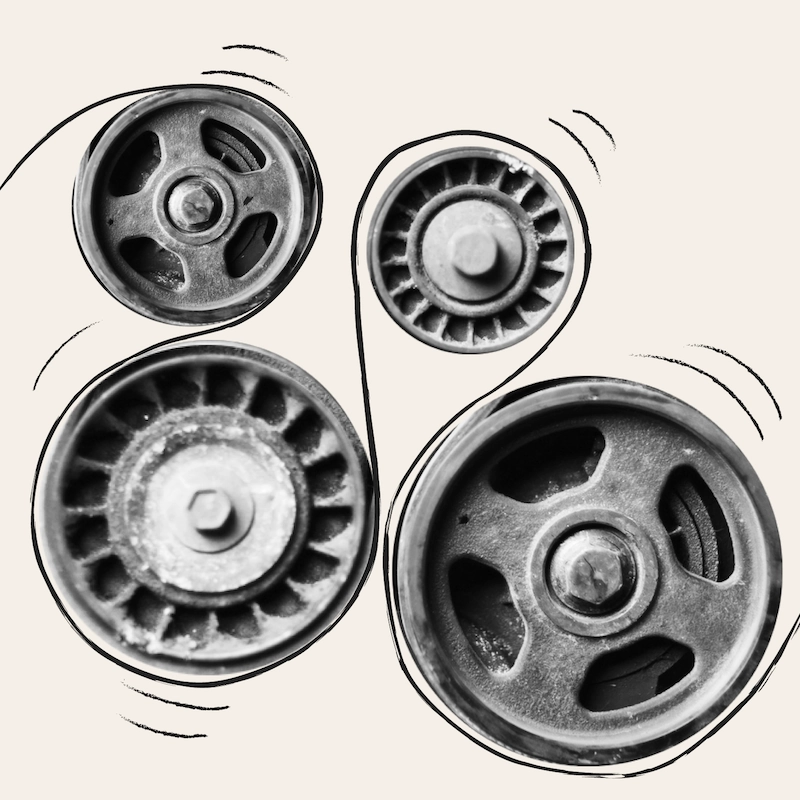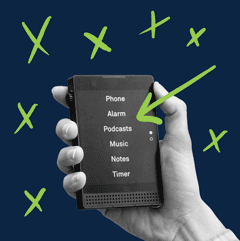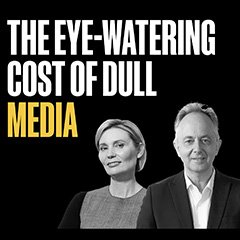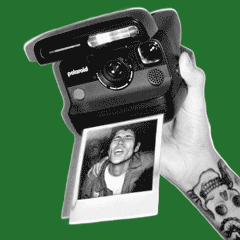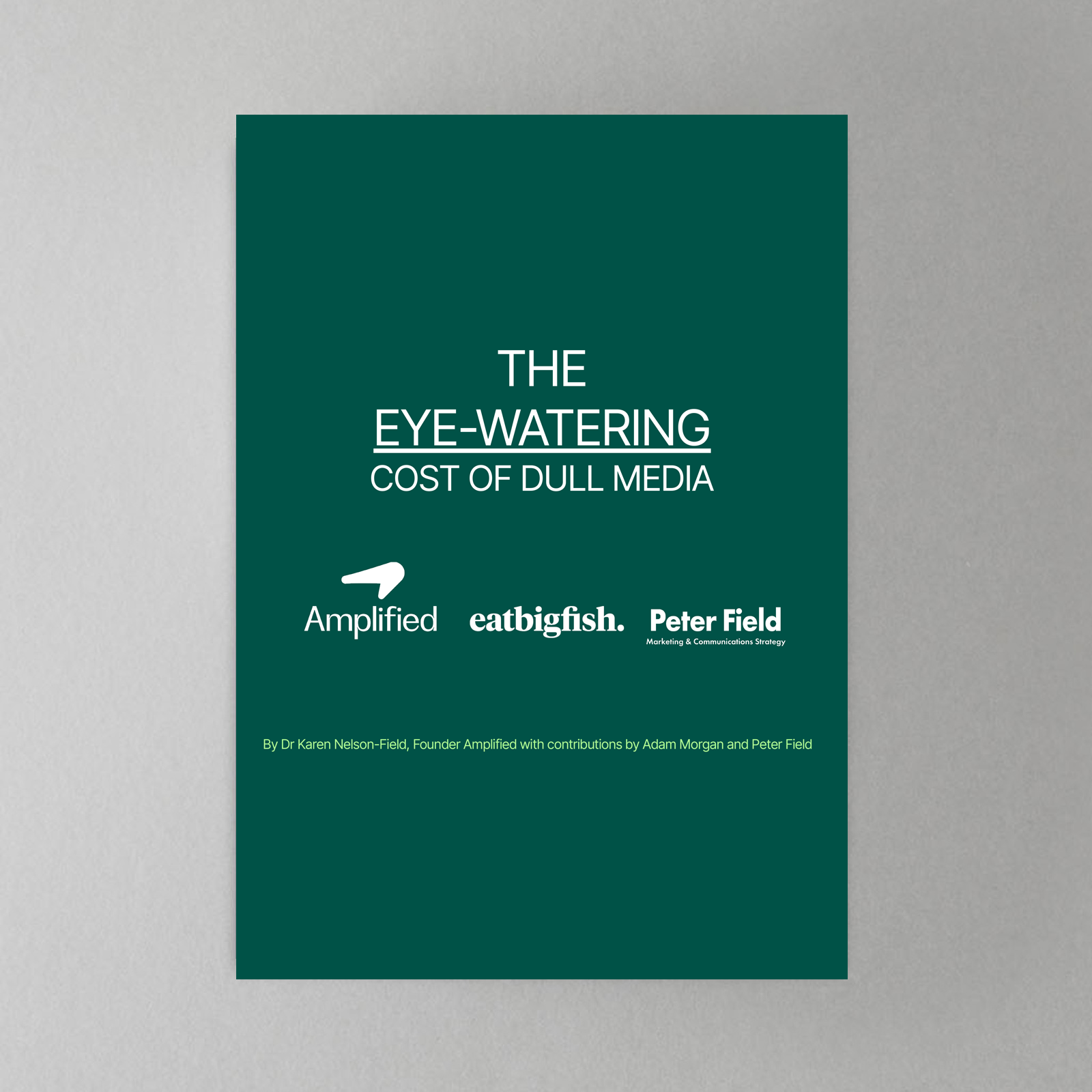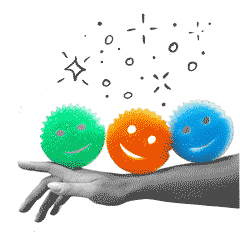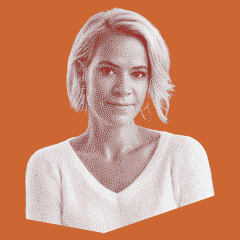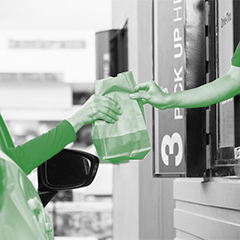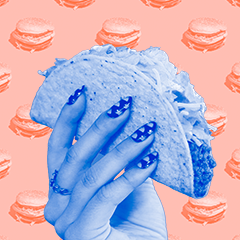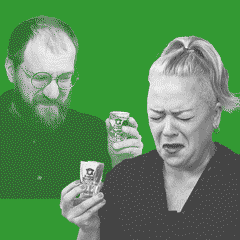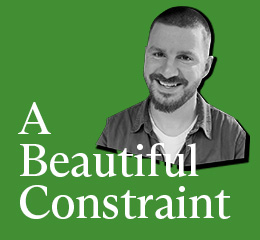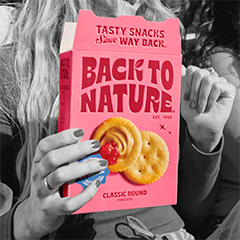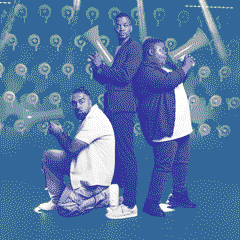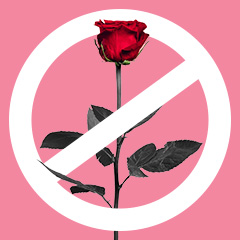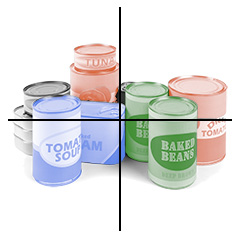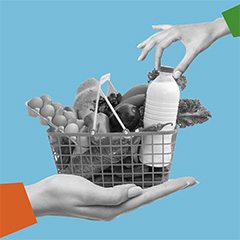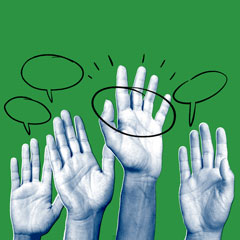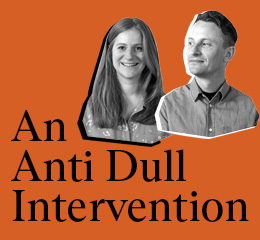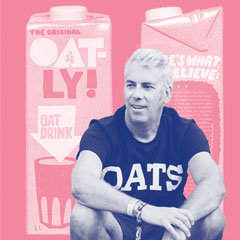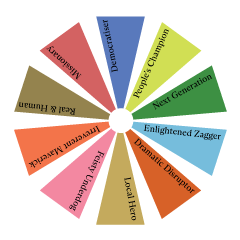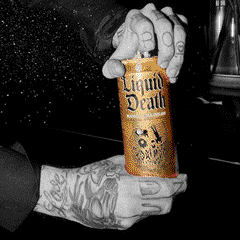Savannah Bananas: “Fans First. Entertain Always.”
Savannah Bananas: “Fans First. Entertain Always.”
Choreographed dances, stilts, backflips, a man in a banana suit…could this be anything but Banana Ball? While traditional baseball may be America’s pastime, Banana Ball takes the game to a whole new level with 11 additional rules that make the game more entertaining and more fast-paced. Having started in 2016, the league now has four teams, the Savannah Bananas, the Party Animals, the Firefighters and the Texas Tailgaters, who play all around the US to sold out stadiums (every single time!) With 3 million fans now joining the waitlist for tickets each season, this game is a phenomenon not to be missed. Sarah McAllister spoke to Kara Heater, VP of Marketing at Fans First Entertainment, the company behind the Banana Ball League, to find out how their mission statement ‘Fans First. Entertain Always.’ plays out in every game.
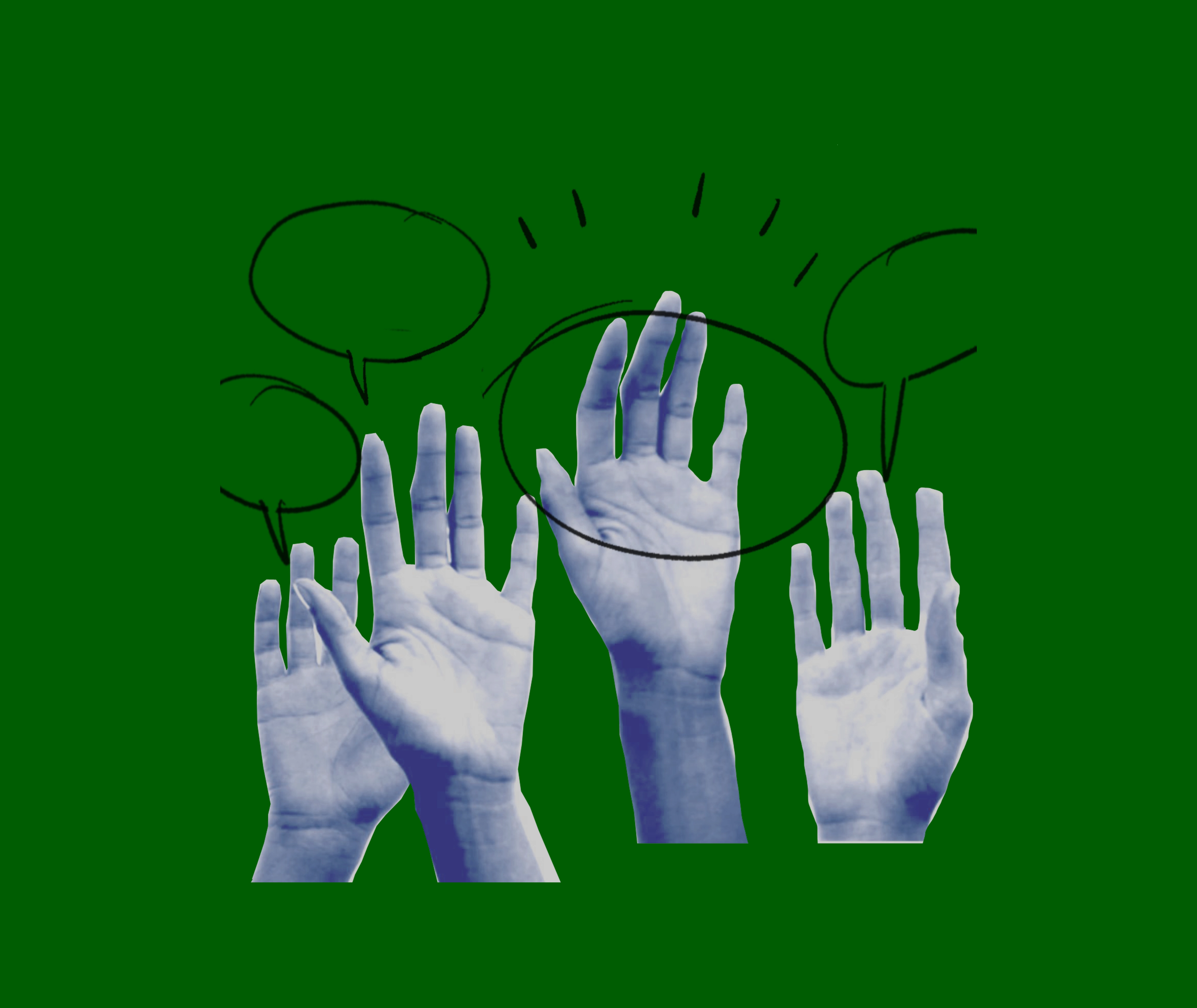
.webp)
.webp)
The game of Banana Ball is always such a unique experience for both fans in person and on social media. How do you make sure you are consistently surprising and delighting your audiences?

When we started, there were only nine rules of Banana Ball. Now there's 11, because we've realized that we are building this game from scratch. We need to make adjustments, and it's okay to change things. Everything we've done has been a test. We definitely want to make sure that we're never growing too fast. We've been very careful in making sure that we're scaling our growth. So in full transparency, last year, we could have done more than the seven MLB stadiums we went to this year, but we wanted to make sure that we could nail the experience that the fans were getting at those MLB and bigger venues. So, it's really about making sure that we're scaling our growth and making sure that the fans first experience is growing along with us.
A lot of that comes from just listening to our fans – what the fans are liking, what they're not liking. It’s making sure that we adjust our show and the experience for the fans when they're coming to games or even online as well, and we're not just doing the same thing every single night.
Our entertainment team, our marketing team, our video team, we make it a point to add in at least 10 new things to the script every single night. A lot of the things are staples that stay the same when you're at a Savannah Banana show, but then you also see very new things every time you come. And then, obviously, with it being a baseball game or a Banana Ball game, the game is going to be different every time too, which helps.
The Bananas head coach Tyler Gillum always says that we want guys who can flip the switch. They can go into a game and put on the best performance of their life and be competitive about baseball and want to win, but the second they walk off that field, they flip that switch to dance with fans and sign autographs and be fans first for everyone in the stadium. We're always trying to just ‘plus’ the experience for our fans and make sure that it is a different experience every single time they come.
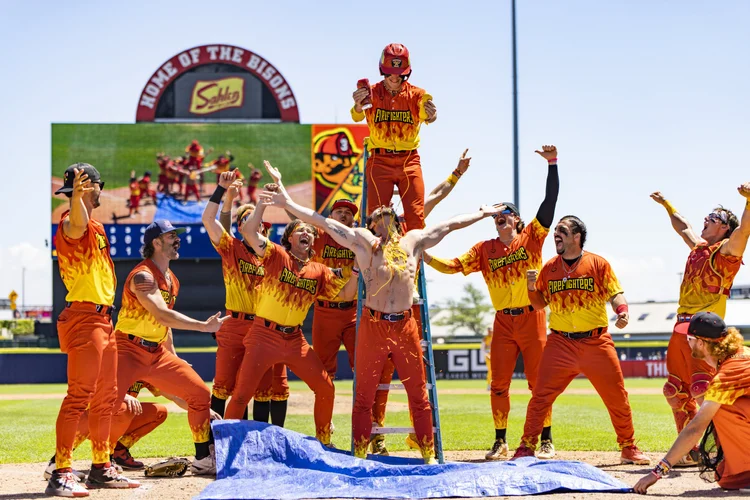
Where do you get your inspiration for all these new pieces of content every week?
All over. We actually have weekly idea session meetings called OTT meetings. OTT stands for over the top, so pitching crazy things that we can do in the game. We have one person represented from each department, so one from the video team, one from the entertainment team, one from the marketing team and one from our broadcast team. Basically we are just sitting down and pitching as many ideas as we can think of for each team. Sometimes, we'll have specific buckets like: this week we're bringing trending ideas from Tiktok. Other times, it's: we're bringing ideas for walk ups that involve a hose. So we just did a whole video of a guy getting soaked in the walk up, so stuff like that. And then from there, we basically choose what's going to go into the game that weekend, and then we have rehearsals. And then it's showtime on game day.
It's very similar to how SNL does their idea pitching, table read, rehearsals, showtime. Things can get cut in rehearsals too, if they're not up to standard. So, we have those meetings for content pieces and then the entertainment team specifically does another idea set for promotion, or what happens in between each half inning like dizzy bat or stuff like that. They come up with some wild ideas and that definitely keeps it fun and crazy during the game too.
I would say we pull more inspiration from industries outside of the sports world, more than we do the sports world, just because, again, we're trying to do things people have never seen on a baseball field before. So, that means pulling some inspiration from Cirque du Soleil or the Britney Spears show in Vegas or something like that. We're always looking for things that are totally outside of the box, that you would never imagine would happen in a baseball game.
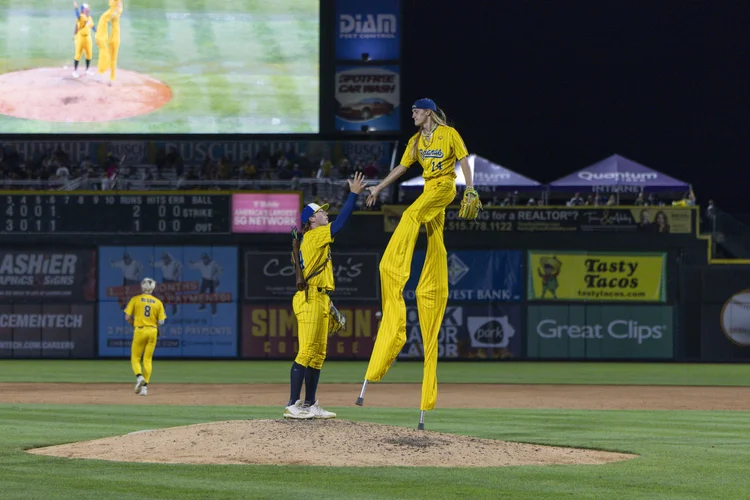
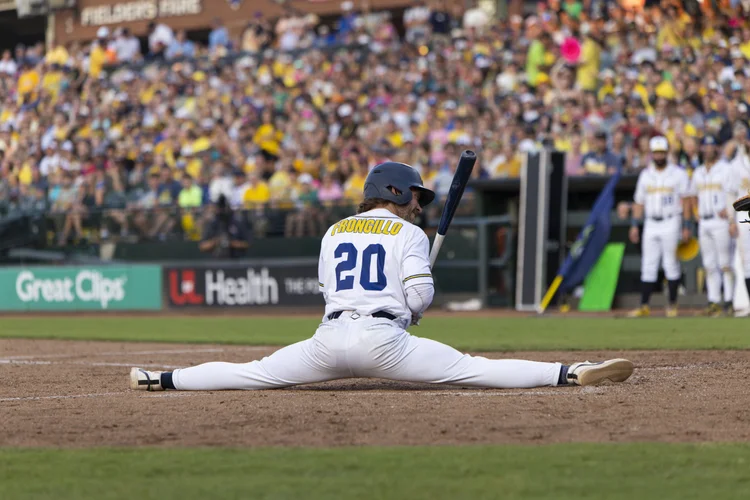
Often, when Challengers break with the status quo, they do so by denying the assumptions of their audience. What assumptions do the Savannah Bananas deny?
A lot of people assume that we're just something for kids, that this is fun for kids, but it's not for adults. But we have everyone from all ages, all different backgrounds, all different demographics coming to our games and relating to us on social media. Our whole goal is making sure that there's someone for everyone. So, we have our Banana Nanas, which is our senior citizen dance team. So, grandmas come to the game, and they're like, I want to do that next year. We also have our Banana Splits at some games, which is our younger dance team that knows how to do all the crazy flips and splits and all that stuff. So younger kids can see how cool it is. And then each player has built up their own personality and character. So, some of them really like hunting, some of them really like fashion and any fan can find a player to really connect with. You could say that that's kind of our premise. We want to make sure that there's someone or something for everyone to enjoy, and we really try to hold true to that.
However, there are definitely people that don't like us, and that's okay. We're never going to be everyone's cup of tea. For example, baseball traditionalists, so those people who are just tried and true baseball lovers, they don't get into it, and that's okay. We've managed to flip a few, but not all. They have their thing. We have ours. And that's okay. It's cool though, when we can convert those people or show that it's a different experience in a different game. We don't want to be compared to baseball. We're trying to be in our own league, so that we don't have those competitors. We want to be something different from baseball. We want to be Banana Ball. So, it’s really cool when you can see somebody who is a big-time baseball fan who can also appreciate Banana Ball. Half of our staff are baseball traditionalists, but they can also appreciate that changes needed to be made to the game, and we're doing something really cool here.
What sets the Savannah Bananas apart from traditional baseball teams but also other forms of entertainment? How do you consistently raise the bar when it comes to the experience you deliver?
I think the biggest thing is how true we actually hold to our mission statement, which is: Fans first. Entertain always. In everything we do, we're always making sure that we come back to that and asking ourselves, is this fans first? If the answer is no, we're going to go back to the drawing table every single time.
From a marketing standpoint, when we post anything on social media, we're always asking ourselves, is it fans first? Does this make baseball fun? That is our entire goal. We are trying to change the game of baseball and make it more fun than it ever has been before. So, we're constantly trying to think of things that have never been done on a baseball field. Our strategy and mindset when it comes to the live shows and for social media is: is this shareable? Are we proud enough to share it on our own personal pages with our friends and family? And if the answer is no, then why in the world would we be excited to share it to millions of fans on the team pages? When we're on social, we're keeping up with all the trends and all the algorithm changes, and making sure that our constant is that our content is never stagnant and boring. We're always trying to ‘plus’ it and think of the next cool thing we can do for our followers, because a lot of people can't come to games, whether it be because we don't come close to them, or they're in a different country, etc. So, it's about making sure that the experience we're providing online is as cool as the one in person.
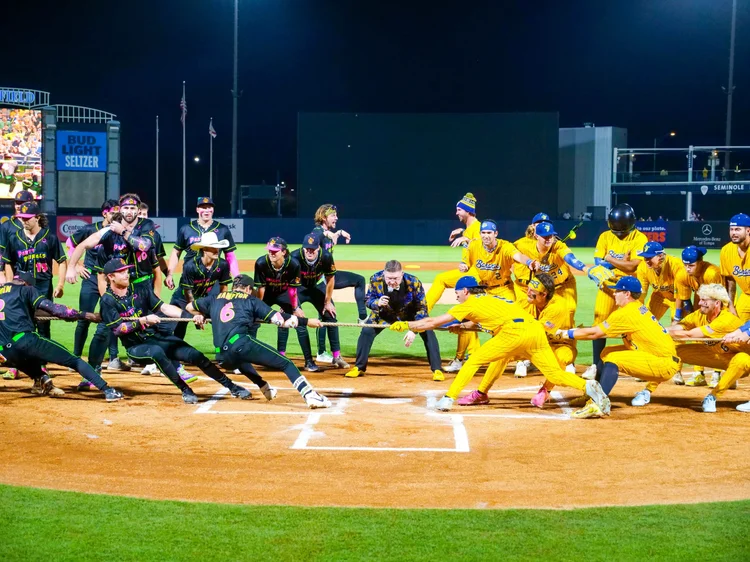
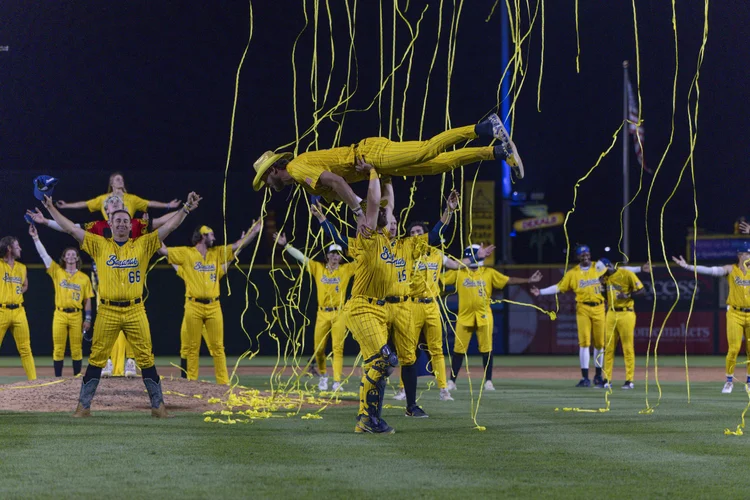
One of your core values is ‘fewer things, done better’ which we would call ‘sacrifice to overcommit’. Can you give us an example of where you’ve actioned this?
The best example I can give is through our partnerships and sponsorships. So, when we first started, we had ads on the outfield wall and some ads in the game. We had to post things on social. But in 2020, we actually eliminated all traditional sponsorships and partnerships. We took all the ads down, because we felt they weren't providing any value to our fans. So, we took a very different approach to partnerships, and now we only have three official partners: Dunkin’, Bodyarmor, and Wilson EvoShield and Louisville Slugger who provide our equipment. So, with Dunkin’ Donuts for example, what we do is, in the game, we have a donut batter. So, for whoever the Bananas are playing, one hitter on the other team is designated the donut batter, and if he strikes out, the crowd gets free donuts through vouchers we hand out. And the players actually go and throw Munchkin donut holes into the crowd for people to eat right then and there. And so not only is that providing value for the fans, but it's also creating an experience. They get to remember that 1,000s of people were just screaming “Donut!” at the same time in hopes that this guy strikes out. They got excited when he did strike out. And then they get to remember it all when they go to the Dunkin’ the next day and cash in their voucher for a free donut. Dunkin’ also does some really cool appearances with us where fans will get the opportunity to come meet four players, two from each team or cast members, and get to hang out with them in a totally different setting. It's very intimate. It's very personal, which is really, really cool for the fans to experience. So, that's an example of fewer things, done better. We had all these partnerships, and we felt that this is just not working, but now, we can fully focus on making these three partnerships that we have the best of the best, not only for us, but for our fans as well.
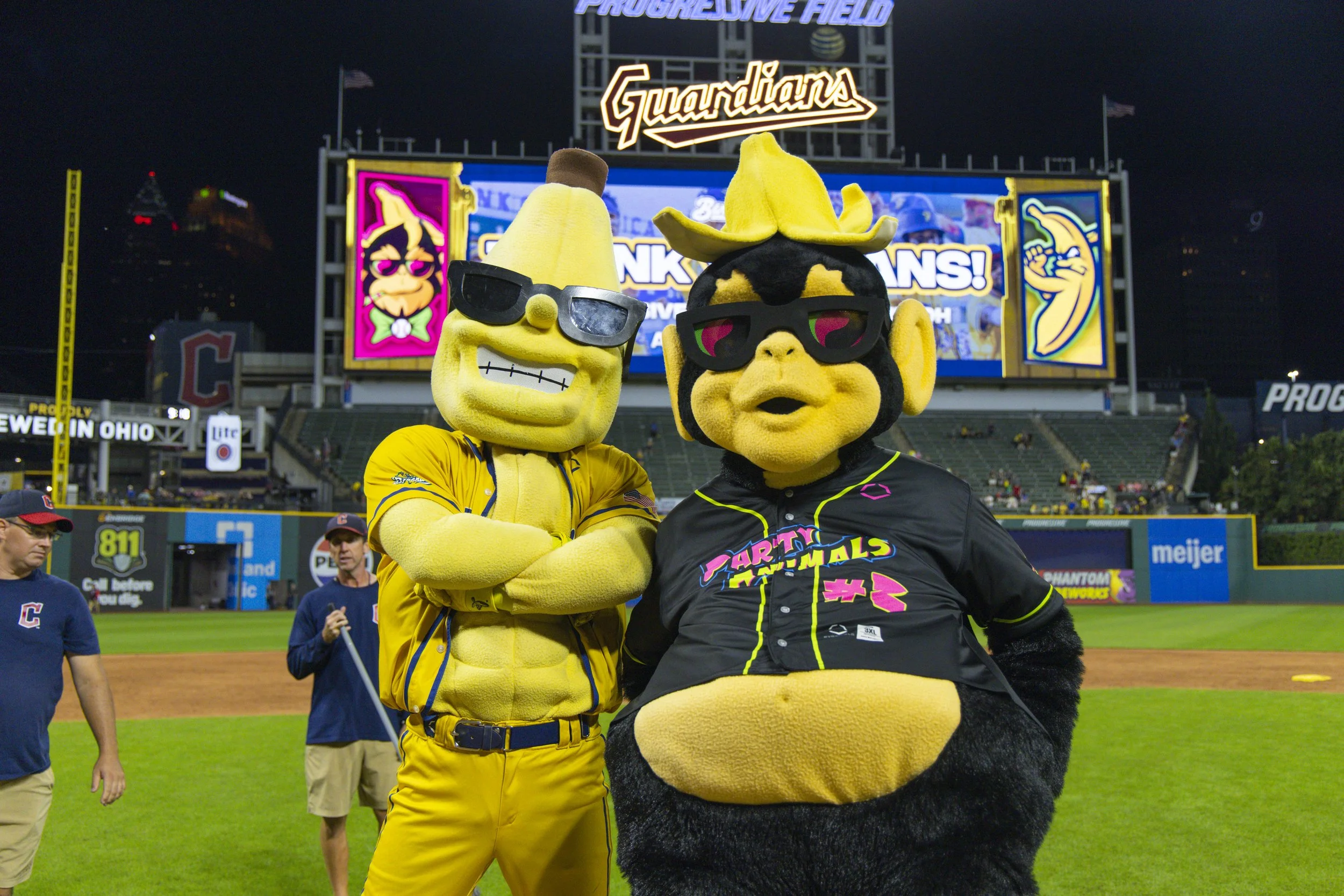
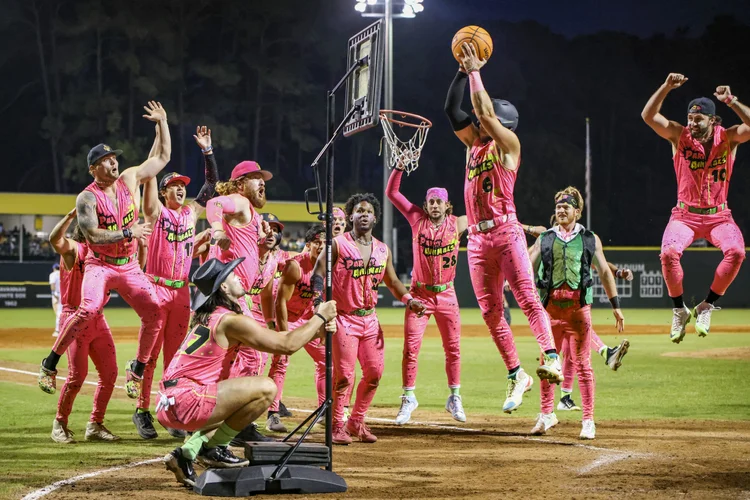
Brands with a Challenger Mindset often view constraints as fuel for creativity. How do the Savannah Bananas see them?
Our team owner always says constraints foster creativity, so we're on the same page there. For us, playing in new stadiums is always a different experience. We always have to figure out how we're going to film things, how we're going to create this walk up, how we're going to activate fans in different areas of the ballpark. So that's a constraint that we have in every single stadium we go to, because only a few people go and do a site visit for it. We go in blind, in a sense, because you can look up pictures, but you don't know how long it's going to take walking down the stairs to get to the dugout.
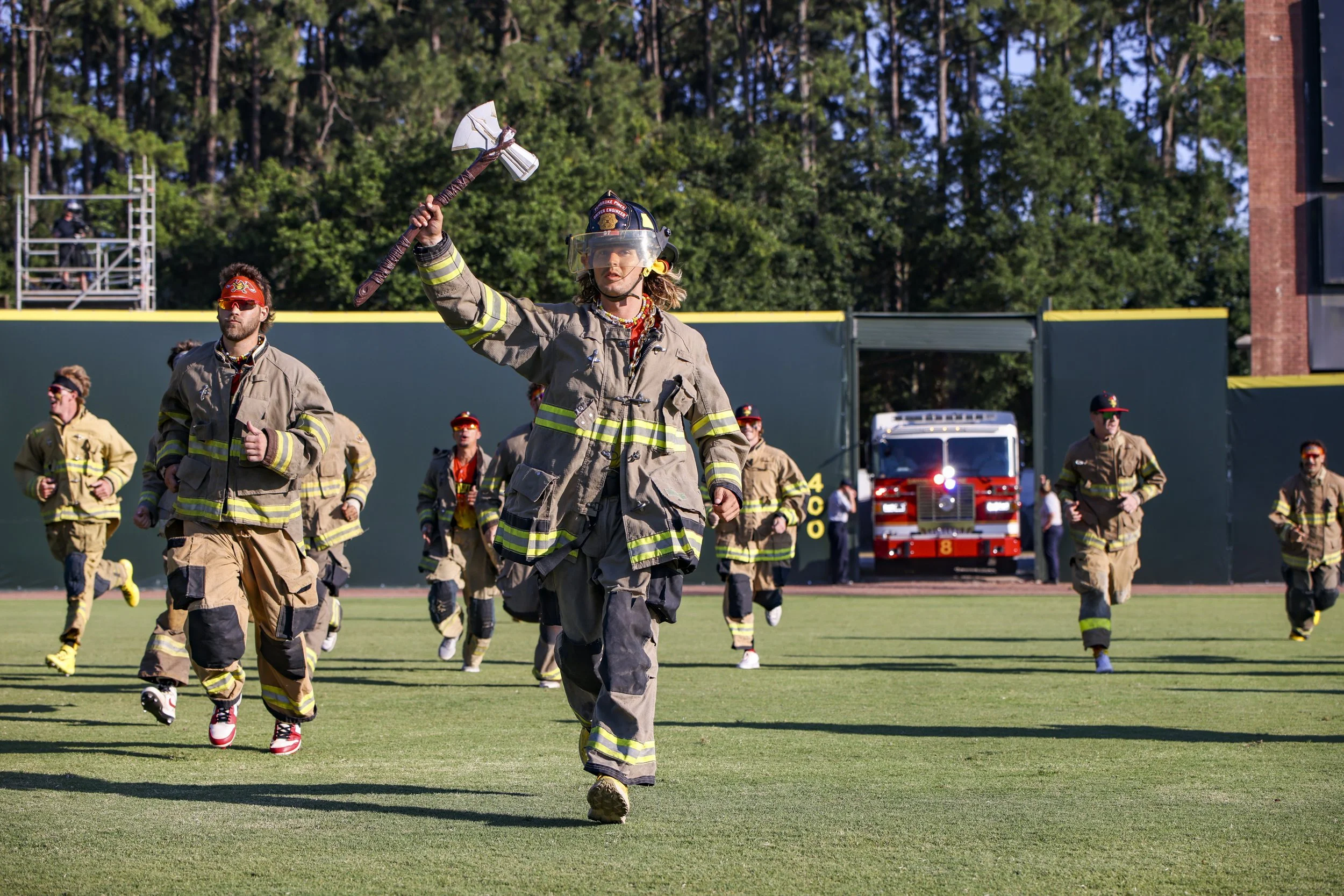
We have also started to put some constraints in play for ourselves with having new teams come on board. So, we started with the Bananas. We added the Party Animals. Now, we also have the Firefighters and the Tailgaters. And we realized with the Bananas and the Party Animals, that while their brands and brand tone and strategy are very different, they do a lot of similar things. It's dancing. It's a lot of the similar show pieces, just in a different way. So, with these new teams, we really want to make sure that the experience fans will get is completely different from what they've seen in a Bananas or Party Animals game. Obviously, you're still going to get Banana Ball. You're still going to get the fun stuff. But how do we make it not just a ‘rinse and repeat’ for a different team? And that's for everything from their live show, their social media presence, their email, everything. So, we've put some red tape down for ourselves. We said for the Firefighters team, they won't dance. It doesn't make sense for them to dance. They're a heroic team. They're all about strength and that all-American feel. So, they can bop around on the sideline if a good song comes on, but they won't be doing the lip-syncing walk ups that the Bananas do. Instead, they will be flying through a ring of fire, maybe on a dirt bike – that kind of stuff.
So, the biggest constraints we're setting this year are these new teams and making sure that we're really ‘plusing’ the experience and pushing the bar to create a whole new experience for the fans at these games, with these new teams.

What are the other touchpoints that Savannah Bananas delivers differently on? How does the brand experience go beyond the game itself?
We want to make sure that we are providing the best show ever. And that doesn't always mean just in the game. So, we've actually added the Before the Peel Show just last year, because we're continuing to grow the show around the actual show, I guess you would say. For example, in Tampa Bay, fans started showing up at 11am. They were tailgating in the parking lot, and then our pre show started at 12. We were like, “Okay, we're going to entertain them for two hours, because they want to be here, and they want the full experience. We're going to make it the best we can.” So, that means all of our cast going out there. Some of the players sang karaoke, some of them did dances, some of them did trivia. Our broadcasters even got out there. So, there's a lot of cool opportunities just to continue ‘plussing’ the experience for those fans. And then at about like 2:30 all the players actually went out and did a full signing with all of the fans.
We really want to make sure that we're continuing to break down that fourth wall. We want our players to feel like real people, like fans can get to know them, and a lot of that is just human interaction. So, whether it be before the game or in the game or after the game, players are always bumping around to different parts of the stadium. They are making those ‘fans first moments’ with our fans, whether that be just sitting down and chatting with them for a bit, signing a ball, taking a picture, any of that fun stuff. And then after the game, we also have what we call our Post-Game Plaza Parties. So that's when the Banana Band, our DJ, and the Party Down Band (the Party Animals band), go out and play a full set, and fans can just not leave if they don't want to leave. Some people want to keep the night riding, and we're here to do that with them. So, it's a lot of fun and all the cast and crew just goes out and dances. It's one final hurrah, and then at the end of each night, all the fans, cast and players put their arms around each other, and we sing ‘Stand by Me’. At the end of that, we give one little countdown that says “Fans first on three.” And all the fans and the players and cast get to shout out “Fans first!” It just makes fans and us as staff, cast, players, feel a part of something special.
And that's what sets us apart, in a lot of ways, is just trying to do things that are so different from the experience you would get elsewhere.
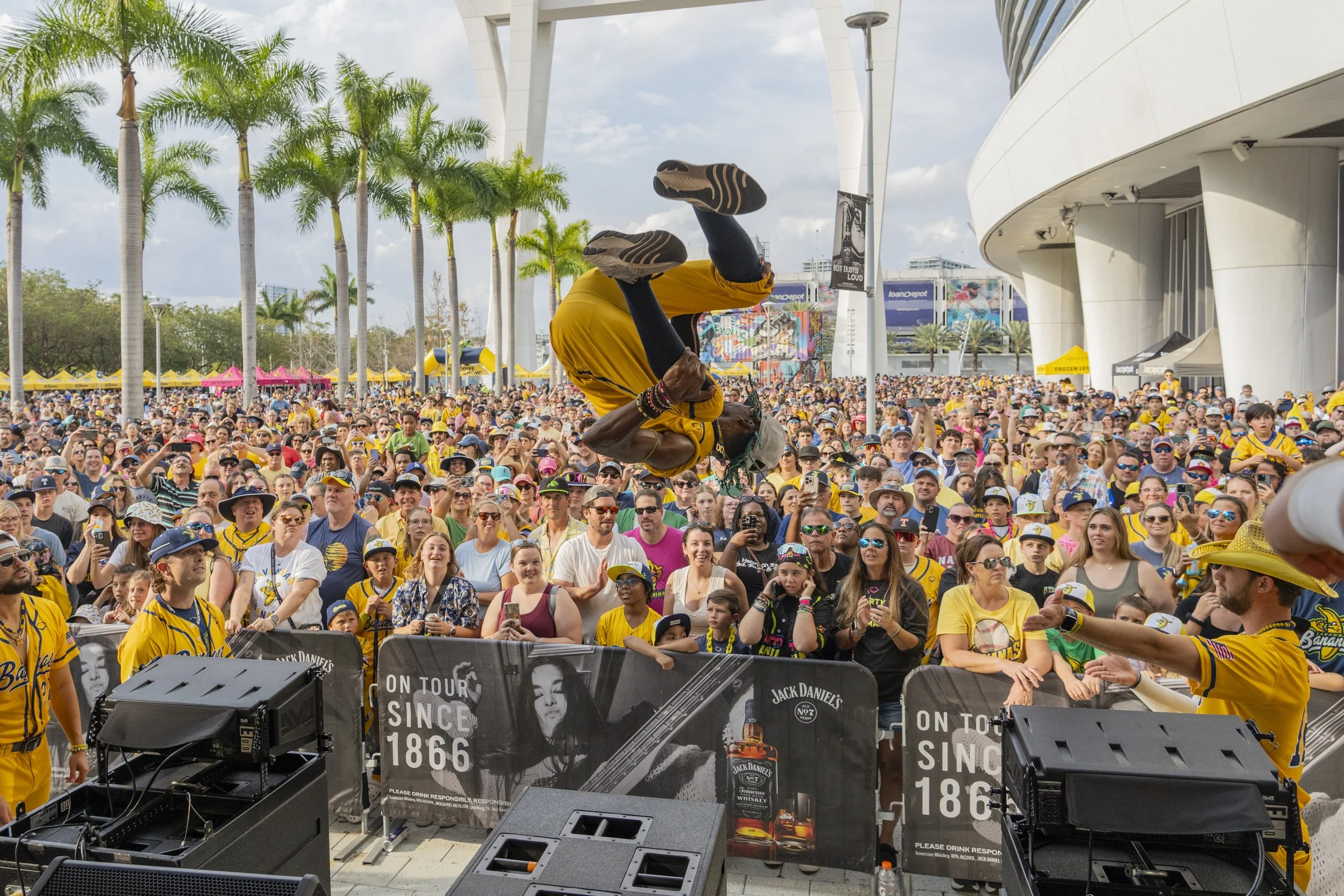
The game of Banana Ball is always such a unique experience for both fans in person and on social media. How do you make sure you are consistently surprising and delighting your audiences?

When we started, there were only nine rules of Banana Ball. Now there's 11, because we've realized that we are building this game from scratch. We need to make adjustments, and it's okay to change things. Everything we've done has been a test. We definitely want to make sure that we're never growing too fast. We've been very careful in making sure that we're scaling our growth. So in full transparency, last year, we could have done more than the seven MLB stadiums we went to this year, but we wanted to make sure that we could nail the experience that the fans were getting at those MLB and bigger venues. So, it's really about making sure that we're scaling our growth and making sure that the fans first experience is growing along with us.
A lot of that comes from just listening to our fans – what the fans are liking, what they're not liking. It’s making sure that we adjust our show and the experience for the fans when they're coming to games or even online as well, and we're not just doing the same thing every single night.
Our entertainment team, our marketing team, our video team, we make it a point to add in at least 10 new things to the script every single night. A lot of the things are staples that stay the same when you're at a Savannah Banana show, but then you also see very new things every time you come. And then, obviously, with it being a baseball game or a Banana Ball game, the game is going to be different every time too, which helps.
The Bananas head coach Tyler Gillum always says that we want guys who can flip the switch. They can go into a game and put on the best performance of their life and be competitive about baseball and want to win, but the second they walk off that field, they flip that switch to dance with fans and sign autographs and be fans first for everyone in the stadium. We're always trying to just ‘plus’ the experience for our fans and make sure that it is a different experience every single time they come.

Where do you get your inspiration for all these new pieces of content every week?
All over. We actually have weekly idea session meetings called OTT meetings. OTT stands for over the top, so pitching crazy things that we can do in the game. We have one person represented from each department, so one from the video team, one from the entertainment team, one from the marketing team and one from our broadcast team. Basically we are just sitting down and pitching as many ideas as we can think of for each team. Sometimes, we'll have specific buckets like: this week we're bringing trending ideas from Tiktok. Other times, it's: we're bringing ideas for walk ups that involve a hose. So we just did a whole video of a guy getting soaked in the walk up, so stuff like that. And then from there, we basically choose what's going to go into the game that weekend, and then we have rehearsals. And then it's showtime on game day.
It's very similar to how SNL does their idea pitching, table read, rehearsals, showtime. Things can get cut in rehearsals too, if they're not up to standard. So, we have those meetings for content pieces and then the entertainment team specifically does another idea set for promotion, or what happens in between each half inning like dizzy bat or stuff like that. They come up with some wild ideas and that definitely keeps it fun and crazy during the game too.
I would say we pull more inspiration from industries outside of the sports world, more than we do the sports world, just because, again, we're trying to do things people have never seen on a baseball field before. So, that means pulling some inspiration from Cirque du Soleil or the Britney Spears show in Vegas or something like that. We're always looking for things that are totally outside of the box, that you would never imagine would happen in a baseball game.


Often, when Challengers break with the status quo, they do so by denying the assumptions of their audience. What assumptions do the Savannah Bananas deny?
A lot of people assume that we're just something for kids, that this is fun for kids, but it's not for adults. But we have everyone from all ages, all different backgrounds, all different demographics coming to our games and relating to us on social media. Our whole goal is making sure that there's someone for everyone. So, we have our Banana Nanas, which is our senior citizen dance team. So, grandmas come to the game, and they're like, I want to do that next year. We also have our Banana Splits at some games, which is our younger dance team that knows how to do all the crazy flips and splits and all that stuff. So younger kids can see how cool it is. And then each player has built up their own personality and character. So, some of them really like hunting, some of them really like fashion and any fan can find a player to really connect with. You could say that that's kind of our premise. We want to make sure that there's someone or something for everyone to enjoy, and we really try to hold true to that.
However, there are definitely people that don't like us, and that's okay. We're never going to be everyone's cup of tea. For example, baseball traditionalists, so those people who are just tried and true baseball lovers, they don't get into it, and that's okay. We've managed to flip a few, but not all. They have their thing. We have ours. And that's okay. It's cool though, when we can convert those people or show that it's a different experience in a different game. We don't want to be compared to baseball. We're trying to be in our own league, so that we don't have those competitors. We want to be something different from baseball. We want to be Banana Ball. So, it’s really cool when you can see somebody who is a big-time baseball fan who can also appreciate Banana Ball. Half of our staff are baseball traditionalists, but they can also appreciate that changes needed to be made to the game, and we're doing something really cool here.
What sets the Savannah Bananas apart from traditional baseball teams but also other forms of entertainment? How do you consistently raise the bar when it comes to the experience you deliver?
I think the biggest thing is how true we actually hold to our mission statement, which is: Fans first. Entertain always. In everything we do, we're always making sure that we come back to that and asking ourselves, is this fans first? If the answer is no, we're going to go back to the drawing table every single time.
From a marketing standpoint, when we post anything on social media, we're always asking ourselves, is it fans first? Does this make baseball fun? That is our entire goal. We are trying to change the game of baseball and make it more fun than it ever has been before. So, we're constantly trying to think of things that have never been done on a baseball field. Our strategy and mindset when it comes to the live shows and for social media is: is this shareable? Are we proud enough to share it on our own personal pages with our friends and family? And if the answer is no, then why in the world would we be excited to share it to millions of fans on the team pages? When we're on social, we're keeping up with all the trends and all the algorithm changes, and making sure that our constant is that our content is never stagnant and boring. We're always trying to ‘plus’ it and think of the next cool thing we can do for our followers, because a lot of people can't come to games, whether it be because we don't come close to them, or they're in a different country, etc. So, it's about making sure that the experience we're providing online is as cool as the one in person.


One of your core values is ‘fewer things, done better’ which we would call ‘sacrifice to overcommit’. Can you give us an example of where you’ve actioned this?
The best example I can give is through our partnerships and sponsorships. So, when we first started, we had ads on the outfield wall and some ads in the game. We had to post things on social. But in 2020, we actually eliminated all traditional sponsorships and partnerships. We took all the ads down, because we felt they weren't providing any value to our fans. So, we took a very different approach to partnerships, and now we only have three official partners: Dunkin’, Bodyarmor, and Wilson EvoShield and Louisville Slugger who provide our equipment. So, with Dunkin’ Donuts for example, what we do is, in the game, we have a donut batter. So, for whoever the Bananas are playing, one hitter on the other team is designated the donut batter, and if he strikes out, the crowd gets free donuts through vouchers we hand out. And the players actually go and throw Munchkin donut holes into the crowd for people to eat right then and there. And so not only is that providing value for the fans, but it's also creating an experience. They get to remember that 1,000s of people were just screaming “Donut!” at the same time in hopes that this guy strikes out. They got excited when he did strike out. And then they get to remember it all when they go to the Dunkin’ the next day and cash in their voucher for a free donut. Dunkin’ also does some really cool appearances with us where fans will get the opportunity to come meet four players, two from each team or cast members, and get to hang out with them in a totally different setting. It's very intimate. It's very personal, which is really, really cool for the fans to experience. So, that's an example of fewer things, done better. We had all these partnerships, and we felt that this is just not working, but now, we can fully focus on making these three partnerships that we have the best of the best, not only for us, but for our fans as well.


Brands with a Challenger Mindset often view constraints as fuel for creativity. How do the Savannah Bananas see them?
Our team owner always says constraints foster creativity, so we're on the same page there. For us, playing in new stadiums is always a different experience. We always have to figure out how we're going to film things, how we're going to create this walk up, how we're going to activate fans in different areas of the ballpark. So that's a constraint that we have in every single stadium we go to, because only a few people go and do a site visit for it. We go in blind, in a sense, because you can look up pictures, but you don't know how long it's going to take walking down the stairs to get to the dugout.

We have also started to put some constraints in play for ourselves with having new teams come on board. So, we started with the Bananas. We added the Party Animals. Now, we also have the Firefighters and the Tailgaters. And we realized with the Bananas and the Party Animals, that while their brands and brand tone and strategy are very different, they do a lot of similar things. It's dancing. It's a lot of the similar show pieces, just in a different way. So, with these new teams, we really want to make sure that the experience fans will get is completely different from what they've seen in a Bananas or Party Animals game. Obviously, you're still going to get Banana Ball. You're still going to get the fun stuff. But how do we make it not just a ‘rinse and repeat’ for a different team? And that's for everything from their live show, their social media presence, their email, everything. So, we've put some red tape down for ourselves. We said for the Firefighters team, they won't dance. It doesn't make sense for them to dance. They're a heroic team. They're all about strength and that all-American feel. So, they can bop around on the sideline if a good song comes on, but they won't be doing the lip-syncing walk ups that the Bananas do. Instead, they will be flying through a ring of fire, maybe on a dirt bike – that kind of stuff.
So, the biggest constraints we're setting this year are these new teams and making sure that we're really ‘plusing’ the experience and pushing the bar to create a whole new experience for the fans at these games, with these new teams.

What are the other touchpoints that Savannah Bananas delivers differently on? How does the brand experience go beyond the game itself?
We want to make sure that we are providing the best show ever. And that doesn't always mean just in the game. So, we've actually added the Before the Peel Show just last year, because we're continuing to grow the show around the actual show, I guess you would say. For example, in Tampa Bay, fans started showing up at 11am. They were tailgating in the parking lot, and then our pre show started at 12. We were like, “Okay, we're going to entertain them for two hours, because they want to be here, and they want the full experience. We're going to make it the best we can.” So, that means all of our cast going out there. Some of the players sang karaoke, some of them did dances, some of them did trivia. Our broadcasters even got out there. So, there's a lot of cool opportunities just to continue ‘plussing’ the experience for those fans. And then at about like 2:30 all the players actually went out and did a full signing with all of the fans.
We really want to make sure that we're continuing to break down that fourth wall. We want our players to feel like real people, like fans can get to know them, and a lot of that is just human interaction. So, whether it be before the game or in the game or after the game, players are always bumping around to different parts of the stadium. They are making those ‘fans first moments’ with our fans, whether that be just sitting down and chatting with them for a bit, signing a ball, taking a picture, any of that fun stuff. And then after the game, we also have what we call our Post-Game Plaza Parties. So that's when the Banana Band, our DJ, and the Party Down Band (the Party Animals band), go out and play a full set, and fans can just not leave if they don't want to leave. Some people want to keep the night riding, and we're here to do that with them. So, it's a lot of fun and all the cast and crew just goes out and dances. It's one final hurrah, and then at the end of each night, all the fans, cast and players put their arms around each other, and we sing ‘Stand by Me’. At the end of that, we give one little countdown that says “Fans first on three.” And all the fans and the players and cast get to shout out “Fans first!” It just makes fans and us as staff, cast, players, feel a part of something special.
And that's what sets us apart, in a lot of ways, is just trying to do things that are so different from the experience you would get elsewhere.

Putting the joy back into work (with Bruce Daisley)
If work takes up so much of our lives, and so much of work’s output is down to discretionary effort, how do we make work more engaging - as leaders of teams, and as workers ourselves?
Bruce Daisley has become a world expert on it. Previously the MD of YouTube in the UK, Bruce was the European Head of Twitter when he started exploring the meaning and future of work in a podcast, Eat Sleep Work Repeat. His first book, The Joy of Work, was a Sunday Times number one business bestseller and an FT Book of the Month. He is also the host of the hugely successful podcast ‘Eat Sleep Work Repeat’.
In this episode Adam and Bruce first discuss how to get rid of the things that suck the joy out of work, and then how to create a positive buzz in our engagement, as an individual and as a team.
They talk about:
- What the really big disruption in work has been (and it’s not wfh)
- The essential foundations for making any impact whatsoever on engagement in a culture
- The two key indicators of real engagement at work
- Why idle time is so important
- The real enemy of productivity in an organisation
- The power of Positive Affect
- The surprising importance of laughter
And why, when so much is known about how to drive up engagement at work, so little of that knowledge makes it into the leadership meetings of big organisations.
Listen to Eat Sleep Work Repeat:
Apple: https://podcasts.apple.com/gb/podcast/eat-sleep-work-repeat/id1190000968
Spotify: https://open.spotify.com/show/5KUW5Lu36O4nnfIFqIIUh4
Bruce's books:
The Joy of Work: 30 Ways to Fix Your Work Culture and Fall in Love with Your Job
Fortitude: The Myth of Resilience, and the Secrets of Inner Strength
__
Follow Adam on Linkedin: https://www.linkedin.com/in/adam-morgan-3a473a/
Let's Make This More Interesting is a podcast from eatbigfish. Thanks to our editor Ruth, our producer Travis, and to Tiny Podcasts.
Lessons, Frameworks, Power and Sex (a look back at Season 1)
In this bonus episode Adam summarises the key themes and learnings across all the guests from the first season, to make it useful and usable for you.
He breaks his conclusions into five sections:
1. The Cost of Dull and the Value of Interesting
2. The Four Kinds of Dull
3. Finding the right way to be interesting for you
4. Common themes and key ideas across all the guests
5. How to use it
Read the full transcript of the episode at The Challenger Project.
---------
Connect with Adam on LinkedIn: https://www.linkedin.com/in/adam-morgan-3a473a/
Follow eatbigfish on Linkedin and Instagram
With thanks to our editor Ruth and producer Ross.
Leading the world towards hope (with Gail Gallie)
We’re at an inflection point in how we engage people about the UN’s Sustainable Development Goals, Gail Gallie believes: we now need a completely new model – ‘The gloves are off’. Gail left a successful career in advertising and at the BBC to help set up Project Everyone with campaigner and film director Richard Curtis – their aim: to communicate the UN’s Sustainable Development Goals to everyone in the world in one week. 10 years later, she remains a relentless campaigner and innovator around communicating the SDGs, including the podcast she hosts with Loyiso Madinga, ‘An Idiot’s Guide to Saving The World’.
In this week's episode, Gail and Adam discuss:
- How the combination of a big ambition and a fierce time constraint drove breakthrough solutions for Project Everyone
- The new context: how the whole world has changed, and we need to move on from the old model now
- What this new model of impact campaigning should look like
- The role of surprise here, and how to get the most value from it
- Why the creative campaigning community now has to go for broke
- What it means to engage people in the conversation where they care when it comes to the SDGs, and in language they can relate to
And, in Richard Curtis’ words ‘What is the sound of hope we can make against the noise of despair?’
__
Follow Adam on Linkedin: https://www.linkedin.com/in/adam-morgan-3a473a/
Let's Make This More Interesting is a podcast from eatbigfish. Thanks to our editor Ruth, our producer Travis, and to Tiny Podcasts.
Giving up the gold (with Nick Reed)
Named ‘one of the most 10 influential Brits in Hollywood’ by The Sunday Times, Nick Reed has been a successful Hollywood agent, won an Oscar for a documentary called ‘The Lady in Number 6’, and co-founded the most successful viral content company in the US.
In this episode, Nick discusses with Adam what makes something not just more interesting, but interesting enough to share – along with what it’s like to celebrate winning an Oscar with Bill Murray, how to get cast in a Steven Spielberg film, and how to get a Hollywood studio to buy a writer that nobody wants to buy. And at the heart of Nick’s philosophy is what he calls ‘giving up the gold’: giving value to the other person early, without expecting anything in return. A longer episode that ends this first season, we hope you enjoy it.
Nick's company - Shareability: https://www.shareability.com/
Follow Nick on Linkedin: https://www.linkedin.com/in/nick-reed-79269731/
Watch Nick's Oscar winning film, The Lady in No. 6, here: http://nickreedent.com/
---------
Connect with Adam on LinkedIn: https://www.linkedin.com/in/adam-morgan-3a473a/
Follow eatbigfish on Linkedin and Instagram
With thanks to our editor Ruth and producer Ross.
Interesting at the speed of culture (with Nick Tran)
Is TikTok the most interesting platform in the world? What’s at the heart of its success – and what does it mean to be more interesting in a post TikTok world, when the audience on TikTok is “10x bigger every day than the Super Bowl”?
In this week’s episode, Adam meets Nick Tran, former Global Head of Marketing at TikTok and advisor to a new generation of Challengers, including tech company Nothing. Nick brings his experience as a marketer, advisor and investor to discuss:
- How TikTok has changed the playing field for a new generation of brands
- How he led ‘Project Cheetah’ to reduce TikTok’s campaign development cycle from 10 weeks to a few days.
- The creativity that financial and time constraints force you to develop
- Why he always looks for win-win-win partnerships
- Learning how to create a ’must-see’ piece of creative work
- Why he believes in moving creative in-house to speed up social
- The need for a balanced diet of marketing measurement beyond KPIs and ROI
__
Connect with Nick on Linkedin: https://www.linkedin.com/in/nicholastran/
Follow Adam on Linkedin: https://www.linkedin.com/in/adam-morgan-3a473a/
Let's Make This More Interesting is a podcast from eatbigfish. Thanks to our editor Ruth, our producer Travis, and to Tiny Podcasts.
The third American art form (with Russell Davies)
Powerpoint has become the poster child of Dull – can even this most maligned of mediums really be a tool to be more interesting? Russell Davies not only believes it can, but that it’s the third American art form, along with jazz and hip hop – but only if we think of it and use it in a very different way. It seems such a symbolic flip for the cliché of ‘Death by Powerpoint’, that we’ve given it its own short episode. Here Russell shares his very simple rules for really engaging an audience through Powerpoint.
Russell's book: Do Interesting. Notice. Collect. Share.
https://thedobook.co/products/do-interesting-notice-collect-share
_______
Connect with Adam on LinkedIn: https://www.linkedin.com/in/adam-morgan-3a473a/
Follow eatbigfish on Linkedin and Instagram
With thanks to our editor Ruth and producer Ross.
Creating character at Dishoom (with Sara Stark)
For 10 years Sara Stark was part of the team helping the founders of Dishoom build their restaurant brand and business – a brand that is as rich, engaging and layered as so many other restaurants are superficial and glib.
It’s a conversation about stories, and curiosity, and inventiveness, and layering, and pushing the idea. About a continual commitment to exploring and digging and experimenting and keeping things fresh. About thinking about what it means to be different, genuinely different and engaging, in a way that seems entirely unlike the rest of the business.
If you are remotely interested in brand building, experience or culture the Dishoom story is an inspiration.
Connect with Sara on Linkedin https://www.linkedin.com/in/sara-stark-creative-marketing/
Explore the layers of the Dishoom story at https://www.dishoom.com/
__
Follow Adam on Linkedin: https://www.linkedin.com/in/adam-morgan-3a473a/
Let's Make This More Interesting is a podcast from eatbigfish. Thanks to our editor Ruth, our producer Travis, and to Tiny Podcasts.
Making the magic more probable (with Russell Davies)
One of the most stimulating speakers in brands and communications, Russell has been thinking about what it means to be interesting for over 20 years. In his new book Do Interesting – Notice. Collect. Share. Russell has codified the practice he’s used to make the world more interesting to him, and to make himself better positioned to bring interest to whatever topic he finds himself working on, inside and outside the world of brands. In this episode he shares how we can do it easily, too.
https://thedobook.co/products/do-interesting-notice-collect-share
_______
Connect with Adam on LinkedIn: https://www.linkedin.com/in/adam-morgan-3a473a/
Follow eatbigfish on Linkedin and Instagram
With thanks to our editor Ruth and producer Ross.
The question is more important than the answer (with Warren Berger)
Warren Berger began exploring how to ask better questions through a journalistic interest in innovation. He’s come to believe the importance of questions is much broader than that, and has come on to champion the development of better questioning skills in everything from education to our personal relationships.
He has written widely on the topic, including ‘A More Beautiful Question: The power of inquiry to spark breakthrough ideas’.
In a discussion of some of his central findings and ideas we talk about:
- Why the question can be more important than the answer
- What makes a question dull or interesting
- How a good question shifts things
- The power of ‘Questionstorming’
- How a good question ‘attracts’ answers
- His three part model to asking better questions
- Why businesses should think about having Mission Questions, rather than Mission Statements
And the power for all of us in having three big questions that guide our lives.
Find out about Warren's books on his website: https://warrenberger.com/warren-bergers-books/
__
Connect with Adam on Linkedin: https://www.linkedin.com/in/adam-morgan-3a473a/
Let's Make This More Interesting is a podcast from eatbigfish. Thanks to our editor Ruth, our producer Travis, and to Tiny Podcasts.
Lashing the world with story (with John Yorke)
While storytelling isn’t the automatic answer to every kind of ‘dull’, if we’re going to learn how to tell more interesting stories we should learn from the best. John Yorke founded the BBC Studio Writer’s Academy after a career that included being Head of Channel4 Drama and Controller of BBC Drama Production, working on and producing some of the world’s most widely viewed and critically acclaimed TV drama, from EastEnders to Shameless, Life on Mars and Wolf Hall. In this episode, he shares with Adam his learnings about how we can all tell a story that will really engage our audience.
Read John’s book: Into The Woods: How stories work and why we tell them
John’s company and training services: https://www.johnyorkestory.com/
_______
Connect with Adam on LinkedIn: https://www.linkedin.com/in/adam-morgan-3a473a/
Follow eatbigfish on Linkedin and Instagram
With thanks to our editor Ruth and producer Ross.
How to tell a big story in just 90 seconds (with Louisa Preston and Luisa Baldini)
How do you engage an audience in something that really matters in just 90 seconds? Where do you start? How do you overcome the ‘curse’ of everything you know?
In this episode Adam talks with two former BBC reporters, Louisa Preston and Luisa Baldini, about how they become experts in being compelling in 90 seconds, in careers where they covered everything from the 7/7 bombings and the Amanda Knox trials to interviewing Richard Gere on the red carpet. They now have their own business, Composure Media, that helps executives become brilliantly succinct themselves.
They discuss:
- Their model for engaging in 90 seconds: ‘Hook, Line, and Sinker’
- Why you should always start with your strongest ‘picture’
- Overcoming the curse of expertise
- The importance of the story that only you know
- How to manage a confidence crisis
- What to do when your Hollywood star goes rogue on live TV
And we close by discussing a big part of their work today: helping female executives develop a more confident elevator pitch and presence.
Find out about Louisa and Luisa's work here: https://www.composure.media/
___________
Connect with Adam on Linkedin: https://www.linkedin.com/in/adam-morgan-3a473a/
Let's Make This More Interesting is a podcast from eatbigfish. Thanks to our editor Ruth, our producer Travis, and to Tiny Podcasts.
The interesting Squiggle and the long ‘Aha’ (with Helen Tupper and Sarah Ellis)
The Squiggly Careers podcast has been hugely influential and useful for anyone interested in Career Development community. In this episode I talk to Sarah Ellis and Helen Tupper, the brilliant pair behind the podcast, the two bestselling books that have come out of it – Squiggly Careers and You Coach You – and the company they have founded, Amazing if.
We discuss:
- How, in looking to throw out the old model of the ‘career ladder’, they arrived at that fascinating idea and language of the ‘squiggle’
- How they’ve found a much more engaging way to talk to people about confidence issues, and why it works
- Why dullness in large organisations is often a kind of conformity
- How to be a ‘helpful rebel’ in big companies if you want to help shake up dull practices
Along the way, they talk about a fascinating idea: ‘the long aha’ – that realisation that comes to you sometime after an engaging moment in a meeting, prompting you to question something you are doing, when you realise how pervasive that practice and issue has been in your life. As fascinating and useful as you would expect from the inimitable Sarah and Helen.
Listen to the Squiggly Careers podcast
Find out more about Amazing If's work
Helen and Sarah's books:
________
Connect with Adam on LinkedIn: https://www.linkedin.com/in/adam-morgan-3a473a/
Follow eatbigfish on Linkedin and Instagram
With thanks to our editor Ruth and producer Ross.
The five components of interesting (with Jeffre Jackson and Dave Nottoli)
This week Adam talks to renowned planners David Nottoli and Jeffre Jackson about their research into ‘interestingness’ in advertising.
Drawing from their experience David and Jeffre share their definition of the five key components of interesting:
- How incongruity reinforces memory
- Why Don Draper might be wrong about emotions
- The significance of fish sticks
- Why authenticity isn’t just a buzzword
- Why the details really matter, even if 99% of people don’t notice them
We also learn why we should avoid chasing empty spectacle in the battle for attention, why Nike’s legendary work with athletes can’t be replicated by just any sports brand, what the classic Cadbury’s Gorilla ad teaches us about mystery, and the risk of being sucked into the ‘boreplex’.
Watch Jeffre’s 2006 video on Interestingness: how interesting ads work differently, and what value Interestingness delivers for marketers.
Nike x Charles Barkley “I am not a role model”
Nike x Tiger Woods "I Am Tiger Woods"
___________
Connect with Adam on Linkedin: https://www.linkedin.com/in/adam-morgan-3a473a/
Let's Make This More Interesting is a podcast from eatbigfish. Thanks to our editor Ruth, our producer Travis, and to Tiny Podcasts.
Two thousand years more interesting (with Professor Arlene Holmes-Henderson)
In this episode we talk to Professor Arlene Holmes-Henderson, Professor of Classics Education and Public Policy at Durham University, about her fierce belief in the enduring relevance of classical rhetoric to today’s world, and why its value in helping disadvantaged children find their voice in a more engaging way is fundamental to how schools need to develop oracy, alongside literacy and numeracy. And at the end, she gives a 10-minute masterclass in classical rhetoric that we can all use to make a speech more interesting.
_____________
Arlene's books Forward with Classics and Expanding Classics
The ‘Shy bairns get nowt’ project https://www.durham.ac.uk/news-events/latest-news/2023/05/shy-bairns-get-nowt/
Arlene's work in The Guardian https://www.theguardian.com/education/2023/jun/04/brucey-and-caesar-can-help-children-improve-oracy-says-classic-professor
Connect with Adam on LinkedIn: https://www.linkedin.com/in/adam-morgan-3a473a/
Follow eatbigfish on Linkedin and Instagram
With thanks to our editor Ruth and producer Ross.
Does our attention define us? (with Faris Yakob)
Faris Yakob believes that attention is not merely the first step to engagement with something, but a fundamental shaper of who we are: if ‘we are what we eat’, then what we pay attention to comes to define us.
The author of ‘Paid Attention’ and co-founder of Genius Steals, he and his wife Rosie have spent the last ten years as modern nomads, consulting, speaking and writing. In this episode Adam and Faris discuss:
- How Faris’ diverse career and nomadic life has been ‘a quest for interesting’
- Why attention is part of the substance of our existence
- Why it is impossible to buy attention today …
- …And yet everyone is still competing for our attention all the time
- Strategies for earning attention in a saturated media age
- Why the ‘most interestingness’ comes in the connection of domains that are not obviously connected
Follow Faris on Linkedin: https://www.linkedin.com/in/farisyakob/
Subscribe to Faris and Rosie's substack 'Strands of Genius': https://geniussteals.substack.com/
Connect with Adam on Linkedin: https://www.linkedin.com/in/adam-morgan-3a473a/
Let's Make This More Interesting is a podcast from eatbigfish. Thanks to our editor Ruth, our producer Travis, and to Tiny Podcasts.
How to win a peacock show (with Gemma Parkinson)
This is a podcast for people who can’t afford to bore their audience. And in this episode we talk to Gemma Parkinson, a Global Marketing and Business Director at Moet Hennessy, about how to elevate a presentation into an irresistible performance when you really need to carry an audience with you. A fresh, energetic and charismatic thinker, Gemma shares her advice about how to elevate the interest when it really matters.
____
Connect with Adam on LinkedIn: https://www.linkedin.com/in/adam-morgan-3a473a/
Follow eatbigfish on Linkedin and Instagram
With thanks to our editor Ruth and producer Ross.
A healthy dose of horror (with Mathias Clasen)
That’s enough about humour and the lighter side of interesting.
It’s time to step into the dark.
This week Adam meets researcher Mathias Clasen, co-founder of the ‘Recreational Fear Lab’ and author of Why Horror Seduces and A Very Nervous Person's Guide to Horror Movies, to talk about what he’s learned from haunted houses and horror movies, and how to find the ‘sweet spot’ of scary.
Adam and Mathias discuss:
- The definition of ‘recreational fear’, and why it’s not just for horror film fans
- The evidence that shows why fear is good for us. Why children need more ‘risky play’ for their development than we are giving them, and the surprising results of Mathias’ research into fear on our immune systems
- The physiological and cognitive relationship between fear and enjoyment
- Why we should all make friends with Mr Piggy
_
Read Mathias's books:
A Very Nervous Person's Guide to Horror Movies
Watch Mathias's TedX talk: Lessons from a terrified horror researcher
Connect with Adam on Linkedin: https://www.linkedin.com/in/adam-morgan-3a473a/
Let's Make This More Interesting is a podcast from eatbigfish. Thanks to our editor Ruth, our producer Travis, and to Tiny Podcasts.
On Saturn it’s raining diamonds (with Addison Brown)
How can we be interesting enough to stick in our audiences’ long-term memory? In this episode, Adam speaks to Addison Brown, the science teacher who was the star of a recent Department for Education recruitment film. They discuss the four key principles that underpin success in every lesson – from cognitive load to dual coding – and how shorter pupil attention spans and higher expectations have driven a ‘blossoming of imagination within teaching'.
'Every Lesson Shapes a Life': https://www.youtube.com/watch?v=aGd_Rrs-qNY
Brian Cox asks 'what more do you want?" https://www.youtube.com/watch?v=7uqa2TMzag4
_________
Connect with Adam on LinkedIn: https://www.linkedin.com/in/adam-morgan-3a473a/
Follow eatbigfish on Linkedin and Instagram
With thanks to our editor Ruth and producer Ross.
Stand up and make me laugh (with Chris Head)
Last week’s episode made the business case for humour - but how do we start to find our funny? This week Adam Morgan meets standup comedy writing and speaking coach Chris Head for a comedy masterclass.
Chris shares practical experience and techniques he uses when working with comedians, how he helped stand-up Stepfania Licari push her personal stories for the biggest payoff and coached Richard Lindesay to become a headliner (and TikTok star), all while punching up Adam’s jokes along the way,
They discuss:
- The power of comedy to help engage people with serious and challenging subjects
- Simple techniques to build humour and surprise into anything from a story to an internal announcement
- The importance of making an immediate connection with the audience to break the tension
- The craft involved to go from a joke-shaped thought into a bigger, funnier routine
- The power of misdirection (but not the magic kind)
_____
Contact Chris (or sign up to a course): https://www.chrishead.com/
Chris’s books:
Creating Comedy Narratives for Stage and Screen
A Director's Guide to the Art of Stand-up
The Complete Comedy Script Toolkit
_____
Connect with Adam on Linkedin: https://www.linkedin.com/in/adam-morgan-3a473a/
Let's Make This More Interesting is a podcast from eatbigfish. Thanks to our editor Ruth, our producer Travis, and to Tiny Podcasts.
The secret of Elmo’s success (with Norman Stiles)
In this episode, Adam talks with Norman Stiles, for 20 years the Head Writer on Sesame Street, about the pioneering pairing of entertainers and educators that changed the educational life of a generation. And how success lay in a very simple ambition that has fascinating implications for us all. Sesame Street made something possible that people thought couldn’t be done. What can it teach us about the audiences we want to really engage?
Watch the classic Sesame Street scenes that Norman refers to during the conversation:
- Grover really wants us to learn near and far
- Ernie answers the Count's telephone
- Telly tries to help Elmo get over his fear of clowns
- Big Bird learns about 'just because' and says goodbye to Mr Hooper
----
Connect with Adam on LinkedIn: https://www.linkedin.com/in/adam-morgan-3a473a/
Follow eatbigfish on Linkedin and Instagram
With thanks to our editor Ruth and producer Ross.
The commercial case for humour (with Bridget Angear)
Is our business leaving money on the table by being too serious? In this episode, Adam speaks to Bridget Angear, legendary strategic planner and co-founder of Craig + Bridget, about her recent research “The Business Case for Humour in Advertising”.
Adam and Bridget explore the evidence for the business effects of humour as revealed in the IPA database, and the different values that different types of humour can have for us if we’re looking to be more engaging.
They look at why marketing and communications might be less entertaining now than it used to be, and they consider why agencies and clients seriously need to have a bit more fun.
Because, despite the business case for humour, have we all become just too scared to be funny?
--
Connect with Adam on Linkedin: https://www.linkedin.com/in/adam-morgan-3a473a/
Watch Bridget deliver “The Business Case for Humour in Advertising” here: http://youtube.com/watch?v=r91B08Xebtg
Bridget's books -
- The insiders' guide to advertising: How the business of advertising really works
- Creative problem solving.: A useful little strategy book by craig+bridget
- Revolt: A movement owner's manual
--
Let's Make This More Interesting is a podcast from eatbigfish. Thanks to our editor Ruth, our producer Travis, and to Tiny Podcasts.
Who Are You Really? (with Ross Buchanan)
In this episode, Adam talks to national radio presenter Ross Buchanan (Absolute Radio, Radio X) about what it takes to be interesting for four hours with an audience you never actually see. How much is it about being more interesting in what you say and do, and how much is it about what you share of yourself? And why shouldn’t you talk about biscuits?
-
Connect with Adam on LinkedIn: https://www.linkedin.com/in/adam-morgan-3a473a/
Follow eatbigfish on Linkedin and Instagram
With thanks to our editor Ruth and producer Ross.
Break that routine (with Simon Peacock)
This week Adam meets award-winning improviser and director of the iconic Assassin’s Creed video games Simon Peacock to explore how the element of surprise makes his work and life more interesting.
Beginning with Simon’s early success as a professional improviser in Montreal, they discuss the 10 commandments of good improvisation, why routine and repetition ruin a performance, and what happens when you apply improv principles to your own wedding.
In the second half, Simon shares what it takes to give a more interesting audition, his experience as a director in the world of video games, and why audiences crave surprise.
We find out what preparation it takes to direct 2,000 lines of dialogue in one day, why it’s always a good idea to deliver a unique take in an audition (even if it doesn’t land you the job), and the terrible fate of a canvas sack called Bob.
__
Connect with Adam on Linkedin: https://www.linkedin.com/in/adam-morgan-3a473a/
Let's Make This More Interesting is a podcast from eatbigfish. Thanks to our editor Ruth and our producers at Tiny Podcasts.
Why Your Dog is a Better Producer Than You (with Maz Farrelly)
In this episode, Adam speaks to reality TV producer Maz Farrelly. Maz has made some of the biggest shows on 3 continents, including Britain’s Got Talent, Dancing with the Stars, Big Brother and Celebrity Apprentice – interviewing 12,000 hopefuls along the way. She now works with businesses to help them make themselves more interesting.
Maz shares her learnings on what it takes to really engage an audience, the three secrets of great content, and how to be interesting enough to get cast in one of her shows. Along the way, we discuss:
- Why, if you’re ambitious, you have to see everything as a ‘production’
- How your dog produces you to get what it wants
- What ‘white noise’ is, and why it matters
- How to interview well enough to get into the Big Brother house
- Why many of us have become lazy producers, particularly in big companies
- When ‘fine’ isn’t good enough if you want to be the Number 1 Show
- Asking the questions to discover the interesting story in everyone (and how to make a dull person interesting for a TV audience)
- Why you can only last for a week before you ‘leak’
- The power of subverting expectations as a producer
- The recipe for great content on television (and how to play Susan Boyle Bingo)
- The importance of really ‘scratching’ to get to what’s interesting
- Three bits of advice on how to be a great producer and be more interesting
- How to apply this to our business and personal life
Maz is as fascinating as she is funny. We hope you enjoy this wonderfully stimulating conversation with someone who makes everything she does a little more interesting.
__
Find out about Maz's work here: https://www.mazspeaks.com/
Follow Maz on Linkedin: https://www.linkedin.com/in/maz-speaks/
Connect with Adam on LinkedIn: https://www.linkedin.com/in/adam-morgan-3a473a/
Follow eatbigfish on Linkedin and Instagram
With thanks to our editor Ruth and producer Ross.
Why you need a third Spider Drop (with Heather McGill)
In this episode Adam talks to Heather McGill, Head of Spectator Experience at London 2012 and previously Tour Manager for the Spice Girls, about how to create more interesting shared experiences.
Heather shares lessons about how to create more engaging spectator experiences for live tours and ‘global mega events’ such as the Olympics and Paralympics, large industry expos like Dubai 2020, and her current project, the Harry Potter Forbidden Forest, which has sold over a million tickets.
In a wide-ranging conversation that spans her career Heather reveals insights on:
- The real competition when you are designing experiences
- How to structure the development of an experience
- The importance of the lull, as well as the high
- What exponentially changing audience expectations really means for being more interesting in experience today
- Sir Jonny Ive’s one piece of advice on designing the London 2012 experience
- The three ways to tackle a problem in the experience
- The value of creating common ownership
- How constraints make the experience better
- How to build wonder
…Oh, and why the third spider drop makes all the difference.
___
Find out more about Heather’s work: https://www.unifyexp.com/
The Harry Potter Forbidden Forest Exerience: https://hpforbiddenforestexperience.com/
Connect with Adam on Linkedin: https://www.linkedin.com/in/adam-morgan-3a473a/
Follow eatbigfish on Linkedin and Instagram
The Cost of Dull in Business (with Peter Field)
In this opening episode, Adam discusses a new analysis that reveals the real financial cost to a business of being dull with Marketing Effectiveness expert Peter Field. Exactly how much more expensive is it to run dull communications than engaging ones? And what can we learn from people who can’t afford to bore their audiences?
Adam and Peter's conversation explores:
- Why we should be much more intolerant of dull external and internal communication than we are
- A simple test: ‘The six slide rule’
- How we can make dull itself more interesting to those we need to change - by putting a concrete cost on it
- Peter’s new analysis, and what it reveals
- So why is it that so many well-intentioned, smart people are choosing to be dull?
- A look ahead to the future guests on the podcast: people whose job it is to make dull subjects interesting, and the two kinds of things we’ll learn from them
- 3 things you can do tomorrow
__
Download Peter's slides on The Cost of Dull here: https://thechallengerproject.com/blog/the-cost-of-dull-with-peter-field
Follow Peter's work here: https://www.linkedin.com/in/peter-field-20110120/
Connect with Adam on LinkedIn: https://www.linkedin.com/in/adam-morgan-3a473a/
Follow eatbigfish on Linkedin and Instagram
With thanks to our editor Ruth and producer Ross.
When Kerosene met Dull (with Peter Field)
A year into the project, what have we learnt about the real price of being dull? Adam opens Season 2 with one of the core collaborators on The Extraordinary Cost of Dull, marketing effectiveness expert Peter Field.
Peter and Adam share how the Extraordinary Cost of Dull has grown from an idea that kickstarted our last season to a 3-year research project with multiple contributors. One that has been sparking a vital conversation within the marketing and communications community over the last year.
Starting with their reflections on the response to the project so far, they discuss new developments including:
Data from the DMA that reveals what dull is costing us not just in TV, but through the whole funnel
Upcoming work from Dr Karen Nelson-Field, another core collaborator, on the real cost of choosing lower attention media platforms and channels
Peter’s latest findings on the business effects of dull, and its impact on brand trust
The development of the practical strategic tools to help marketers avoid dull from the start
They finish with a look at their ambitions for The Extraordinary Cost of Dull in the year head.
____
The Extraordinary Cost of Dull Project is open to contributors. Do you have a data set to share with the project? Get in touch at hello@eatbigfish.com
Follow Peter's work here: https://www.linkedin.com/in/peter-field-20110120/
Connect with Adam on Linkedin: https://www.linkedin.com/in/adam-morgan-3a473a/
Follow eatbigfish on Linkedin and Instagram
Trailer: Let's Make This More Interesting
Do you have moments in your business or personal life when you simply can’t afford to bore your audience? What can we do to hold their undivided attention when it really matters? To find out, Adam Morgan, founder of eatbigfish, speaks to fascinating people who excel at engaging their audience – be they distracted social scrollers, bored schoolchildren or cynical CEOs – and learns from them how we can all be much more interesting.
No one’s ever won the race by keeping pace
Explore more on this topic
Challenge my thinking
